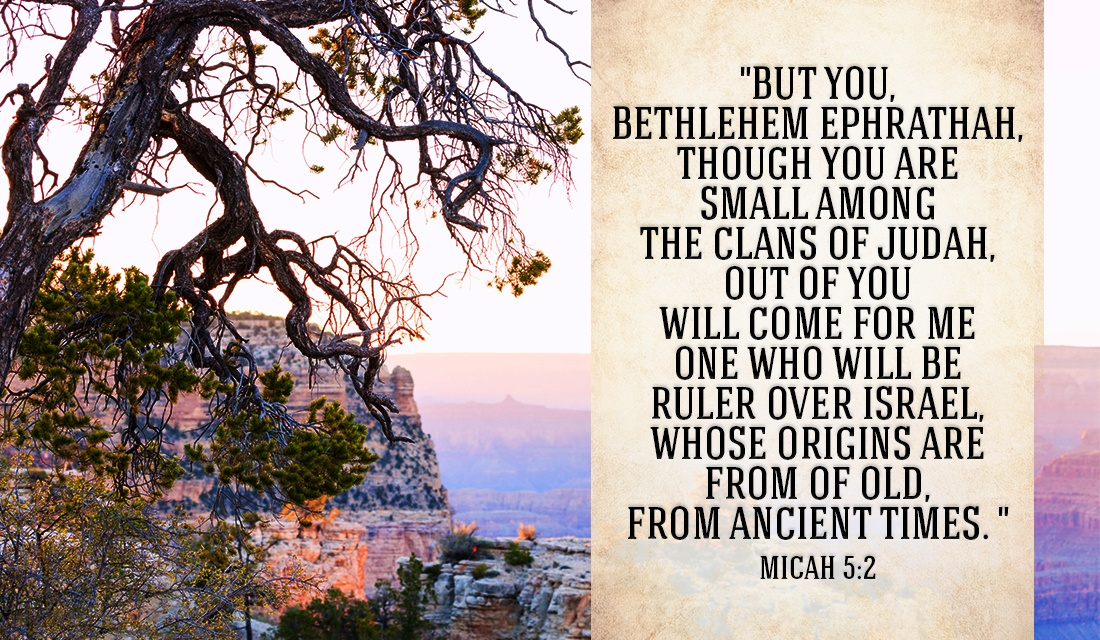
Of all the ancient cities in the world, why did God choose Bethlehem for Christ’s birth? Why not send His only Son, this long promised Savior, to the Holy City of Jerusalem or the cultural hub of ancient Athens? What truths might God have been revealing when He sent the “Bread of Life,” to a hungry, waiting world some two thousand years ago?
Of all the ancient cities in the world, why did God choose Bethlehem for Christ’s birth? Why not send His only Son, this long promised Savior, to the Holy City of Jerusalem or the cultural hub of ancient Athens? What truths might God have been revealing when He sent the “Bread of Life,” to a hungry, waiting world some two thousand years ago?
Bethlehem: The Setting for the Story
You may be familiar with the story. We call it the nativity, and Scripture preserves this ancient event in
To which she responded, “I am the Lord’s servant. May everything you have said about me come true” (

Photo Credit: Getty Images
Where Was the Town of Bethlehem?
According to scholars, Bethlehem’s size and location was rather insignificant at this time. Located six miles south of Jerusalem, this small trade-route village stood between the Holy City and Egypt. It didn’t gain prominence until Herod built his fortresses, whose roads were shadowed by this ancient settlement. In this, we see “how God can use what is seemingly unimportant to make a lasting impact.” This meaningful place, but a blip on an ancient map, reminds us to “never confuse size with significance” writes authors Niel Wislon and Ryken Taylor.
In fact, we see this truth revealed throughout the nativity story. God chose an unknown and likely unesteemed girl from a seemingly insignificant Galilean village to give birth to a baby who would one day save the world.
Where Is Bethlehem Mentioned in Scripture?
Said to be the oldest town in Palestine, Scripture first mentions Bethlehem, initially termed Ephratah or Ephrath in
But, not trusting God to come through on His promise, or perhaps not understanding the prophesy previously spoken to his mother, Jacob tricked his father into giving him the blessing intended for his brother. Enraged, his brother determined to kill him, so Jacob fled. Fourteen years later, God called him home. Following God’s leading, he headed toward Bethlehem. But while he and his clan were still a ways off, his wife died giving birth to his youngest, Benjamin, the father of the Jewish tribe bearing his name.
Bethlehem was also the hometown of Ruth’s father-in-law, Elimelech, and where she met Boaz, her kinsman redeemer.
In this story of the destitute widow and the Bethlehem man who later married, protected, and provided for her, we see a picture of Jesus, our kinsman redeemer.
To understand the significance of this, we must look at Israel’s history, preserved in Scripture. In ancient times, family members could “redeem” or buy back individuals who had sold themselves into slavery. This act demonstrated chesed, translated as loving kindness or mercy, in “meeting the deep needs of others based on relationship of commitment and covenant.”
This village that birthed our Redeemer has a rich history of redemption.
Why Is it Important That Jesus Was Born in Bethlehem?
Bethlehem means house of bread (beth: house, lehem:of bread), and bread held great importance in Bible times. It was a staple in the ancient diet and provided not only comfort but nourishment necessary for survival. Used in Temple worship, bread also came to symbolize God’s provision and presence and played an important role in Jewish Passover celebrations.

Photo Credit: Unsplash/Wesuel
This again pointed back to Christ as Redeemer. You may be familiar with the story. God’s people had been oppressed for 400 years under Egyptian rule. But God heard their cries and sent a liberator to set them free and lead them to the Promised Land. En route, God taught them how to have an intimate relationship with Him, and that relationship was based on total dependence. Each day, God fed them manna, a bread-like substance, teaching them that He alone was their provider and sustainer.
Jesus reiterated these truths in the gospel of John when He declared Himself the Bread of life. He made this powerful I Am statement shortly after feeding a hungry crowd using five small barley loaves and two fish. Scripture says He didn’t just give them a taste or enough to hold them to their next meal. “Jesus then took the loaves, gave thanks, and distributed to those who were seated as much as they wanted. He did the same with the fish”(
Following this miraculous feeding Jesus declared, “Do not work for food that spoils, but for food that endures to eternal life, which the Son of Man will give you. For on Him God the Father has placed His seal of approval.” When the people challenged Him, He replied, “It is My Father who gives you the true bread from heaven. For the bread of God is the bread that comes down from heaven and gives life to the world” (
After this, He proclaimed: “I am the bread of life. Whoever comes to Me will never go hungry, and whoever believes in Me will never be thirsty.”
His audience would have immediately understood the implications. As authors Neil Wilson and Nancy Ryken Taylor explain, “Coming to Jesus and believing in Him are comparable to eating bread—the latter leads to maintaining physical life, the former leads to spiritual life. This truth was underscored by the miraculous provision of the bread for five thousand people” (
Scripture Points toward a Promise to Come from Bethlehem
God promised Jesus, the Bread of Life, would come back when mankind first felt his need for a Savior. (

Design Credit: Rachel Dawson
Then, after generations of all of these vivid illustrations, God spoke more directly in
God sent the Prince of Peace to give us peace, the Bread of life, birthed in the house of bread, to give us life, from now to eternity. This Christmas, may we all feast on the One who longs to daily nourish and sustain us and fill us with overflowing, beyond what we can imagination.
Jennifer Slattery is a writer and speaker who’s addressed women’s groups, church groups, Bible studies, and writers across the nation. She’s the author of Hometown Healing and numerous other titles and maintains a devotional blog at JenniferSlatteryLivesOutLoud.com. As the founder of Wholly Loved Ministries, she and her team love to help women discover, embrace, and live out who they are in Christ. Visit her online to find out more about her speaking or to book her for your next women’s event, and sign up for her free quarterly newsletter HERE to learn of her future appearances, projects, and releases.
Photo Credit: Getty Images/lukbar








